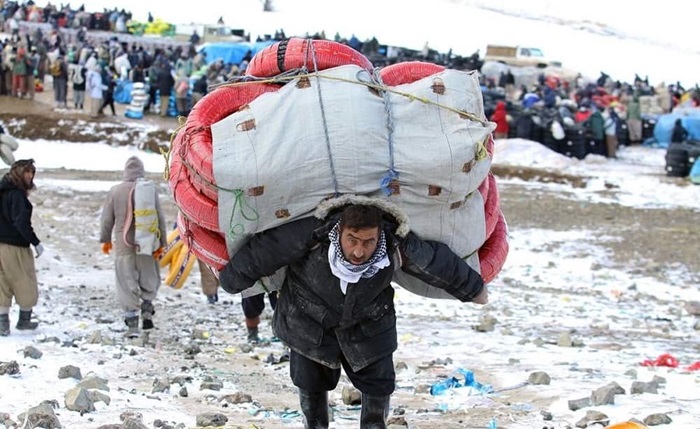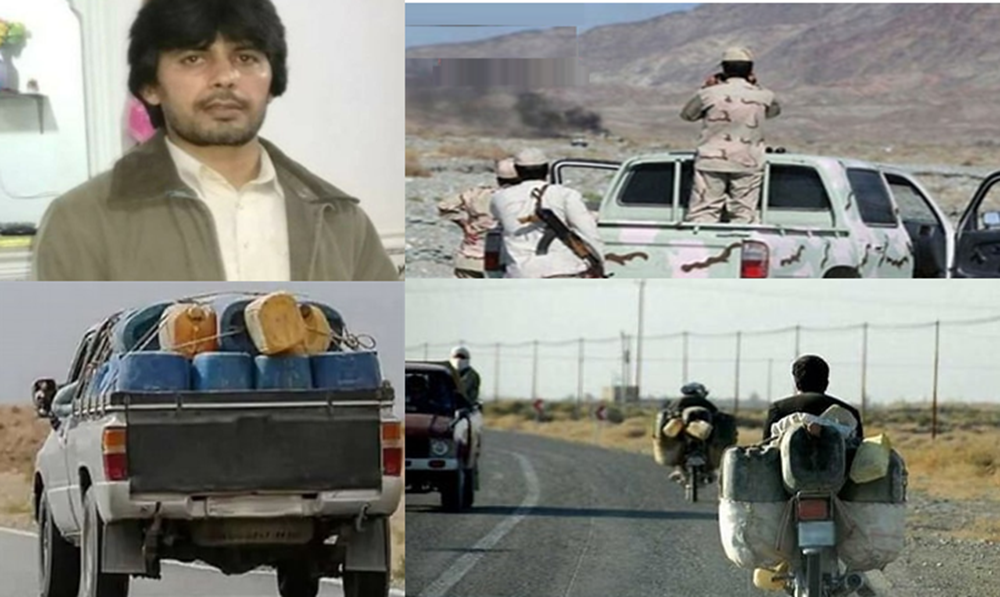
In the rugged terrains of Iran’s northwest, a 22-year-old kulbar named Soran Abdi fell victim to security forces’ gunfire on the Baneh border, marking yet another fatality in a series of attacks targeting subsistence porters.
These kulbars, who ferry goods across the mountainous Kurdish border region to impoverished communities, alongside their counterparts along the southeastern border with Pakistan, are increasingly facing lethal force from the Iranian military and security personnel. This phenomenon, as reported by the Iran Human Rights Monitor on March 26, highlights a disturbing trend of violence against individuals engaged in a desperate bid for survival, often labeled derogatorily as “smugglers” by the Iranian regime.
The spike in such brutal incidents correlates with Iran’s intensified crackdown on dissent, particularly following the nationwide protests that erupted in late 2022. Regions home to vocal Kurdish and Baluchi populations have borne the brunt of the regime’s repressive measures. This escalation is part of a broader pattern of human rights abuses, as noted in a report to the United Nations Human Rights Council, investigating the regime’s actions.
Abdi’s death is not an isolated incident but part of a continuum of violence. On the same day, at least three other kulbars were injured, including 16-year-old Milad Hosseini, whose condition remains uncertain. These attacks are symptomatic of a regime seemingly intent on silencing any form of dissent or desperation, evident in the killing of another kulbar, Peyman Ahmadi, and several others in recent weeks under similar circumstances.

Human rights organizations report that at least 37 fuel porters were killed last year.
Human rights organizations report that at least 37 fuel porters were killed last year, with the number of kulbar fatalities being even more alarming. Between March and September 2023 alone, approximately 85 deaths were recorded, stemming from a variety of causes including direct fire from security forces. This trend, if continued, suggests a grim outlook for 2024, especially with the regime’s crackdown showing no signs of abating.
The backdrop of this violence is a nation still reeling from the suppression of the 2022 uprising, which saw the killing of around 750 protesters and the arrest of 30,000, according to the People’s Mojahedin of Iran (PMOI/MEK). The regime’s strategy appears to leverage fear and repression to maintain control, with minorities and religious groups disproportionately affected.
This repression extends beyond ethnic minorities to include religious groups such as the Baha’i, whose gravesites were recently desecrated, and individuals like Laleh Sa’ati, imprisoned for converting to Christianity. These actions underscore the regime’s broader assault on freedom of belief and expression, aiming to cement a hardline fundamentalist identity.
The unfolding human rights crisis in Iran, characterized by the regime’s escalating violence against its most marginalized, demands international attention and action. With the regime’s desperate attempts to stifle dissent, the international community must remain vigilant and decisive in its response to ensure that the voices of the oppressed are not silenced amidst the ongoing turmoil.

MEK Iran (follow us on Twitter and Facebook), Maryam Rajavi’s on her site, Twitter & Facebook, NCRI (Twitter & Facebook), and People’s Mojahedin Organization of Iran – MEK IRAN – YouTu
